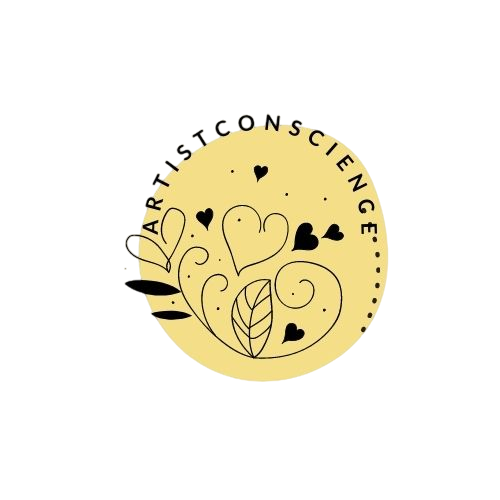Journal Your Way to a More Balanced Life

Journaling has become increasingly popular in recent years, especially among those who want to manage their mental and emotional health better.
There are no right or wrong answers when it comes to journaling. The goal is to write down your thoughts and feelings so that you can process them and gain a deeper understanding of yourself and your emotions.
Journaling involves regularly writing down one’s thoughts and feelings to understand oneself better and process difficult emotions.
1. Reduces stress and anxiety:
One of the most well-known benefits of journaling is that it can help reduce stress and anxiety.
I have been journaling for years and have definitely seen the benefits in terms of my overall well-being. Just reading previous entries demonstrates how far I have come in my journey to improve my anxiety. Writing things down when I have felt particularly stressed has released that energy from my body.
Writing down your thoughts and feelings can help you process and make sense of them, which can, in turn, help you feel more in control and less overwhelmed.
2. Helps you to identify patterns:
When you write in a journal regularly, you may notice patterns in your thoughts and feelings. For example, you may notice that you tend to feel more anxious on certain days or in certain situations.
By identifying these patterns, you can start to make changes to your life that may help you feel more balanced and centred.
3. Encourages self-reflection:
Journaling can be a powerful tool for self-reflection. You can better understand yourself and your emotions by writing down your thoughts and feelings. This can help you make better decisions, improve relationships, and become more self-aware.
Additionally, journaling helps with the following:
- Recognising Patterns and Triggers
As mentioned previously, regular journaling allows you to notice patterns in your behaviour and emotions. For example, you may get anxious before meetings or feel down on rainy days. By identifying these patterns, you can better understand what triggers certain feelings and how to manage them.
- Gaining Clarity
Writing about your experiences and emotions can help you gain clarity. When you see your thoughts on paper, it’s easier to understand complex emotions and situations. This clarity can lead to deeper self-awareness and better decision-making.
- Setting and Reflecting on Goals
Journaling allows you to set personal goals and track your progress. By reflecting on your achievements and setbacks, you can learn more about your motivations, strengths, and areas for improvement. This process can help you stay motivated and focused.
- Exploring Different Perspectives
When you journal, you can explore situations from different angles. This can help you understand other people’s perspectives and develop empathy. Reflecting on your interactions and reactions can lead to more thoughtful responses in the future.
- Processing Emotions
Writing about your feelings can be therapeutic. It allows you to process emotions in a safe, private space. Whether you’re dealing with stress, sadness, or joy, journaling helps you work through these emotions and understand them better.
- Tracking Personal Growth
Looking back at your journal entries over time can show how much you’ve grown. You can see how your thoughts, feelings, and behaviours have evolved. This retrospective look can be incredibly encouraging and affirming.
Do you enjoy this post? Save it for future reference on Pinterest by bookmarking it!

4. Fosters creativity:
Writing in a journal can also be a great way to express your creativity. Whether you’re writing about your day-to-day experiences, dreams and aspirations, or deepest fears and desires, journaling can help you explore your inner world and express yourself in a safe and supportive environment.
Journaling can be a powerful tool for boosting your creativity. Putting pen to paper can help you think outside the box and spark new ideas.
Additionally, journaling helps with the following:
- Clearing Mental Clutter
Our minds, at times, can be constantly buzzing with thoughts, worries, and ideas. Writing these down frees up mental space, making it easier to focus on creative tasks. Think of journaling as a mental decluttering process. When your mind is clear, new ideas can flow more freely.
- Encouraging Daily Writing Habits
The more you write, the better you get at it. Regular journaling builds a habit of daily writing, which sharpens your skills and makes creative thinking a part of your routine. Even if you start with just a few lines daily, the practice adds up over time.
- Exploring Ideas Without Judgment
A journal is your private space. Enjoy the process of writing whatever comes to mind, and stop worrying about what others might think. This freedom allows you to explore wild ideas and unconventional thoughts, often the seeds of creativity. It’s a safe place to brainstorm and experiment.
- Connecting the Dots
As you journal regularly, you’ll notice patterns and connections between thoughts and ideas. These connections can lead to creative insights and solutions you might not have seen otherwise. Your journal becomes a treasure trove of potential ideas waiting to be discovered.
- Reflecting and Gaining Perspective
Writing about your experiences and thoughts helps you see them differently, which can bring new perspectives and creative solutions to problems. It’s like stepping back from a painting to see the whole picture rather than just focusing on individual brushstrokes.
- Setting Goals and Tracking Progress
Journaling can help you set creative goals and track your progress. You can see how far you’ve come and stay motivated by documenting your journey. This sense of accomplishment can fuel creativity and push you to explore new heights.
- Capturing Inspirations
Ideas can strike at any time, and having a journal handy lets you capture them before they slip away. Whether it’s an interesting thought, a snippet of conversation, or an image that sparks your imagination, jotting it down ensures it’s recovered.
5. Improves mental health:
Finally, journaling has been shown to impact mental health positively. Studies have found that journaling can improve mood, reduce symptoms of depression, and even boost the immune system.
Here are some journal prompts to get you started.
- What are you grateful for in your life right now? Why?
- What are your biggest fears, and how have they impacted your life?
- Describe a moment of great joy in your life. How did it make you feel?
- What are your top priorities, and how do you stay focused?
- Write about a challenge you’ve faced recently and how you overcame it.
- What self-care practices do you currently use, and how do they help you?
- What is something that you’ve been putting off or avoiding? Why?
- Describe a time when you felt proud of yourself. What did you do, and how did it make you feel?
- What are some positive affirmations or mantras that you use to help you stay positive and focused?
- Write about a person who has had a significant impact on your life. How did they influence you, and what did you learn from them?
To conclude
Journaling is a simple yet powerful tool that can help you better manage your mental and emotional health and boost your creativity. Whether you’re looking to reduce stress and anxiety, improve your self-awareness, or tap into your creativity, journaling can be a valuable practice to incorporate into your self-care routine.
Thanks so much for reading this blog. Your time and interest mean the world to me! I hope you found inspiration and insights. Don’t be a stranger—come back soon and join the conversation anytime.
Wishing you a balanced and joyful journey!💛
About The Author
Sherie Mogane
Related Posts
Gift the Body and Mind with Meditation
I went to a beginner’s meditation class, which was a great opportunity because I’ve always …
June 20, 2023How to Create Your Own Self-Care Box
(Blog updated on 24/07/2023) Photo by Toa Heftiba on Unsplash Please note that this blog post contains affiliate …
April 14, 2023© 2020 Artistconscience. All rights reserved



